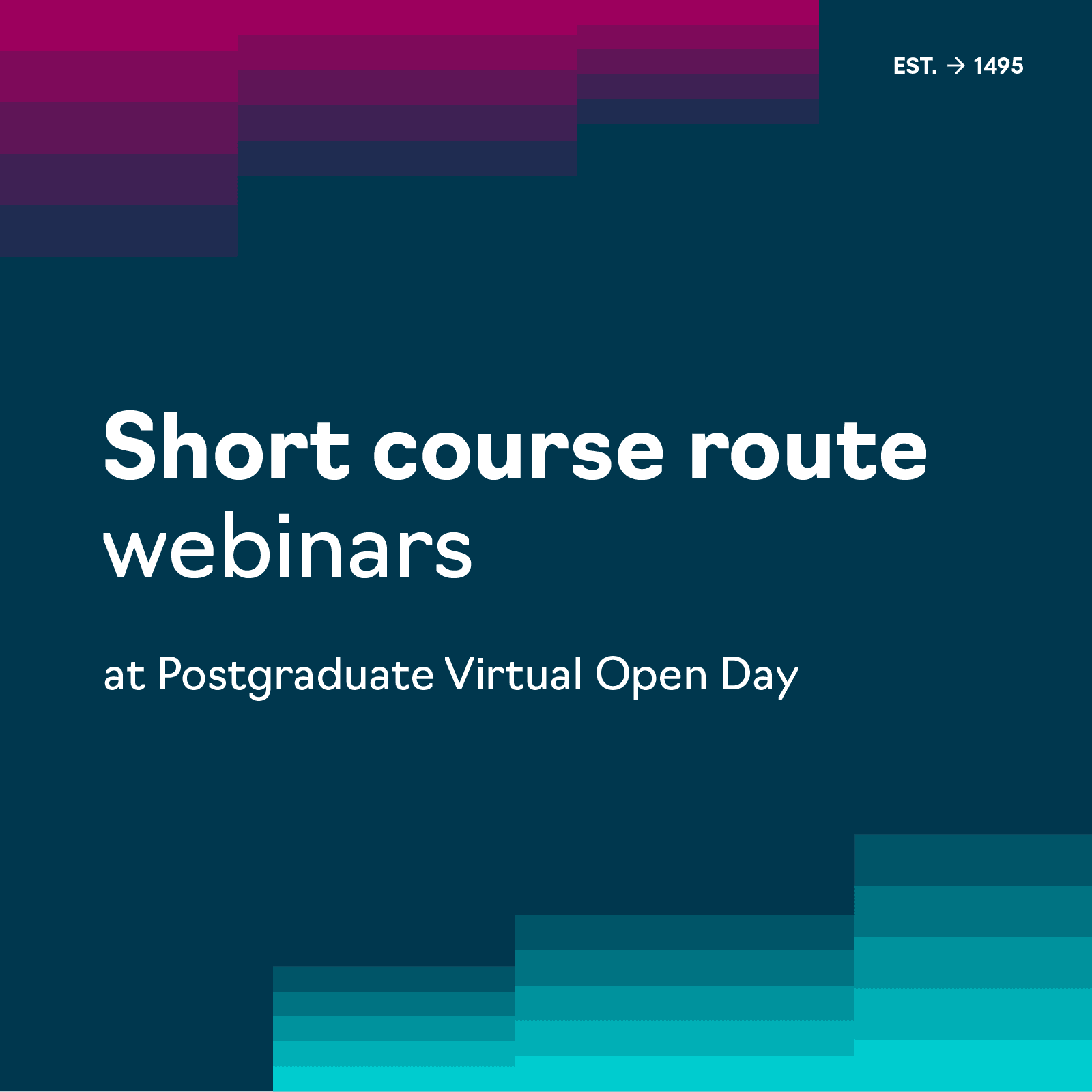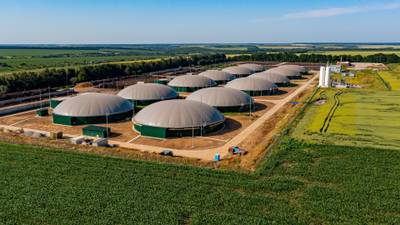
Join our short course route webinar
Interested in taking the short course route to a Masters or postgraduate qualification?
Join our online Postgraduate Virtual Open Day on Thursday 12 March.
We’ll be hosting two live webinars there, explaining how the short course route works and answering all your questions. See you there!
- Morning webinar: 10.50am (GMT)
- Evening webinar: 5.50pm (GMT)
Learn practical GIS skills and how to analyse spatial data.
Join a university with over 30 years of excellence in postgraduate teaching of remote sensing, GIS, visualisation, digital mapping and cartography.
Geospatial technologies are of increasing importance in many areas of commercial, industrial, and government employment. This includes nature conservation agencies, civil and coastal engineering projects, and marine and coastal zone management. As a result, the demand for skills in GIS and related technologies has grown considerably.
In this GIS degree, you’ll study the techniques and tools for acquiring, storing, processing, classifying, analysing and visualising spatially referenced data, and their application to the study of the Earth.
You’ll cover:
- Spatial databases
- Programming
- Simulation and modelling
- Global Positioning Systems (GPS)
- Digital mapping and cartography
- Airborne, satellite and UAV remote sensing
- Digital image processing
- Geographical Information Systems (GIS)
- WebGIS and Internet atlases
- Field data capture
- Mobile GIS.
You can also study MSc Geographical Information Systems full-time on campus.

Association for Geographic Information (AGI)
Joining this MSc entitles you to free student membership of the AGI and AGI Scotland.
What you’ll study
You can choose to study for a:
- Masters (180 credits), or
- start with one of the short courses that make up this degree (15 credits).
How you’ll study
Online learning
MSc Geographical Information Systems is delivered part-time, 100% online.
Your teaching
Your teaching is delivered through MyAberdeen, our online Virtual Learning Environment (VLE). It holds all the materials, tools and support you’ll need in your studies. Take a look around MyAberdeen.
You can access your learning materials on computer, smartphone and laptop, 24 hours a day. You’ll find a range of resources at your fingertips, including online access to our award-winning Sir Duncan Rice Library.
Your tutors
You’ll learn from internationally experienced geoscientists and academics, with direct input from industry via guest lectures and an industry advisory board. Your industry advisory board members are:
- Stewart Angus - SNH (Environmental)
- Martin Berry - Fugro (Offshore Survey)
- Scott Buchan - Aberdeen Harbour Board (AHB) (Hydrography)
- Andy Dare - Andrews Survey (Offshore Survey)
- Marshall Halliday - Esk Rivers & Fisheries Trust (Trust)
- Damian Ling - Chevron (Oil and Gas)
- Aftab Majeed - Aberdeen City Council (Local Authority)
- Mike Mawby - Ops Input Limited (Oil and Gas)
- Dave Scott - Bristow Aerial Solutions (UAV)
They constantly review your course content to make sure your training is always cutting edge and industry-relevant.
Assessments
This degree is assessed entirely online.
Hours for taught courses
If you plan to study part-time, we recommend you take no more than 30 credits per term. Students typically take one or two 15-credit short courses per term.
15 credits
- Around 150 hours of study and assessment time to complete.
- You’ll study 10 – 15 hours per week per term, plus more at assessment times.
30 credits
- Around 300 hours of study and assessment time to complete.
- You’ll study 20 – 30 hours per week per term, plus more at assessment times.
This is an indicative guide to the time required for a typical student at this level to achieve the learning outcomes. This includes time for independent study, as well as teaching and assessments.
You can largely set your own study hours each week to cover the materials. MyAberdeen is available 24/7, so you can log in and study when it suits you.
Activities at fixed times
Some activities will be scheduled for fixed times, such as online meetings with your tutor or assessments with deadlines. But otherwise, you can access and work through each course at your convenience.
Hours for 60-credit projects and dissertations
A 60-credit project or dissertation is around 600 hours of study time.
This is around one term of full-time study.
You can dedicate a full term to your project or dissertation and work on it full-time. Or you can complete it part-time, spreading the hours you dedicate to it over two terms.
When you study with us, you can expect a first-class support structure so that you’re never alone in your studies.
But learning online does mean you have to motivate yourself and manage your own time.
Your most important commitment will be time – the time to work through, reflect on and understand your teaching materials.
Before you start a course that involves a high degree of independent study, we recommend looking at the time you will be able to devote to your studies each week:
- Be realistic
- Create a weekly schedule as a guide
If you have any questions about studying online, get in touch with our friendly team. We’re here to help.
Our first-class support structure will ensure that you aren’t alone in your studies. You’ll have contact with your tutors via MyAberdeen and email. You can use social media and discussion boards to chat with your fellow students too.
We provide a wide range of services to support you in your studies and beyond:
- Careers and Employability Service
- Disability support
- IT support
- Library support
- Student Support Service – help with finances, wellbeing and non-academic issues
- Student Learning Service – study support, with advice sessions available
- Aberdeen University Students’ Association (AUSA) – run by students for students
- Toolkit – clever apps and free training that can make your study life easier
Wherever you are in the world, you’ll feel part of our very special Aberdeen learning community.
We’re a member of the Access scheme run by the Society of College, National and University Libraries (SCONUL).
Access study spaces, books and journals in your area
The SCONUL Access scheme allows you, as a University of Aberdeen student, to access books and resources at university libraries across the UK and Ireland, or visit them for a quiet place to study.
You’ll be able to use study spaces, books and journals at over 150 university libraries which belong to the scheme.
Your support team
Our friendly team are here to answer any queries you have about your studies.

Dr Shaktiman Singh
Shaktiman is the degree coordinator. He’ll be on hand to answer any questions about degree content before you start and to help you throughout your studies.
View Shaktiman’s profile
Get in touch
The online education team is here to answer any questions you have right now about this qualification, or about studying online.
Ask us a questionWhere this will take you
Careers
Our GIS graduates have a very successful employment record in the commercial sector, environmental agencies, local and national government, research, and academia.
They’ve gone on to work as:
- Project officers
- Programmers
- Sales managers
- GIS engineers
- Senior consultant GIS specialists
- Project managers.
Further career opportunities include:
- GIS consultant
- GIS technician
- Planning analyst
- Spatial data consultant.
You’ll acquire the practical experience, specialist knowledge and problem-solving skills to pursue careers in any of these fields.
Industry opportunities
Career opportunities are highlighted through guest lectures, and chances to work with organisations as part of your MSc dissertation.
In addition, there is the possibility of industry suggested projects, dependent upon minimum academic requirements, and industrial input and contact with geospatial practitioners.

Lifelong career support
Our career support doesn’t stop when you graduate.
You have access to our free careers service while you study, and beyond.
- 1:1 appointments
- CV checks
- Interview prep
- Job opportunities
What our students say
Hear from recent students on the online MSc GIS programme.

David, online MSc GIS student (2025), Full-time Student
“The online GIS MSc is fantastic!
“The employability skills development and employability-orientated modules with up-to-date and current GIS trends, such as Web GIS and coding in R, are just amazing.
“I researched various online GIS MSc programmes from other universities, however they were not as employability orientated.
“I was an Oceanographic Engineer for 15 years. However, I became increasingly unhappy at my previous employer and I therefore sought to complete my GIS MSc so that I can pursue a complete career change. Very exciting times!”

Hussameldin, online MSc GIS student (2025), Senior Infrastructure Engineer
“The courses are well structured, and the tutors are responsive and knowledgeable.
“It’s a great option for balancing studies with work or personal commitments.
“I usually study in the evenings from home, where I have a quiet workspace. I follow a set schedule to review lectures, complete assignments, and participate in discussions.”
Fees and funding
Tuition fees typically increase each year. A 3% fee rise has been confirmed for academic years 2026/27, 2027/28 and 2028/29.
Our indicative costs include a 3% fee rise each year.
Pay as you go
This is a pay-as-you-go qualification.
You do not have to pay the full tuition fee upfront.
You can spread the cost and pay as you go, term by term.
How it works
- You decide how many credits to study for each term.
- At the start of term, you pay only for the credits you’re taking that term.
- This gives you control over your costs and workload for each term of your qualification.

Your personalised cost breakdown
Use the degree scheduler to plan your studies and see your cost breakdown, term by term.
TerrSet Software
You will need to purchase a piece of software for one of the courses in this degree: Advanced Spatial Analysis and Programming. The software is called TerrSet. You can buy TerrSet online. The current price (as of July 2022) is US$99. Find out about TerrSet.
Learning resources
All other software and all books and resources you need are included in your tuition fee. They will be available online and you do not have to you buy your own copies. We also provide recommended reading lists. These include books that you may wish to purchase for additional reading, but it is not essential.
Printing
You will have to pay for a printed A0 poster for one of your presentations. As a guide, printing for this is around £35. You may also wish to set aside a small budget for printing in general, depending on how you like to work.
Memory stick and/or external hard drive
You may have to purchase a suitable memory stick or external hard drive, if you do not already have these, for storing data and coursework.
There are several ways you may be able to get help funding your studies:
- Employer sponsorship – we accept full and partial fee payments from sponsors
- Student loans
- Scholarships – search our funding database for scholarships
Find out more about funding options.
Student card
All our students are entitled to a University of Aberdeen student card. This gives you access to a range of student discounts around the city and online.
20% Alumni discount
You’re entitled to 20% off our postgraduate taught degrees and short courses if you have a degree from the University of Aberdeen. View Alumni discount details.
How discounts work
Discounts are applied during your application process. You can only use one discount per application.
Entry requirements
MSc
- A 2:2 UK honours degree or equivalent in Agriculture, Archaeology, Computing Science, Ecology, Engineering, Environmental Science, Forestry, Geography, Geology, Geomatics, Marine & Coastal Science, Marine Biology, Marine Science, Mathematics, Physics, Planning, Plant Science, Soil Science or Zoology.
You can also apply if you have:
- a degree in another subject area and can show your interest, aptitude and/or experience in a field relevant to the application of geospatial technologies.
These are our minimum entry requirements. They are given as a guide and do not guarantee entry.
Short course route to online MSc GIS
If you do not meet these entry requirements, or are not ready to commit to a full MSc, you may be able to use our online short courses as a route into this degree instead.
Find out about our short course route to entryEntry requirements
We welcome students from all over the world.
See the minimum entry requirements above. If you do not have qualifications from the UK, check equivalent qualifications from your country.
Visa requirements
You do not need a student visa to study online with us.
English language requirements
Teaching is delivered in English.
If English is not your first language, use our English requirements checklist to see if you need to provide evidence of your English language skills when you apply.
English language tests and scores
If you do need to provide English language test scores, these are the tests and minimum scores we accept for this course or degree.
These are our Postgraduate Standard requirements.
IELTS Academic, IELTS UKVI Academic, or IELTS Online (not IELTS Indicator or IELTS General Training)
- 6.5 overall
- 5.5 for listening, reading and speaking
- 6.0 for writing
TOEFL iBT or TOEFL iBT Home Edition
- 90 overall
- 17 for listening
- 18 for reading
- 20 for speaking
- 21 for writing
- TOEFL DI code is 0818
Cambridge English: B2 First, C1 Advanced, or C2 Proficiency
- 176 overall
- 162 for listening, reading and speaking
- 169 for writing
LanguageCert Academic / LanguageCert Academic SELT
- 70 overall
- 60 for listening, reading and speaking
- 65 for writing
Oxford ELLT Digital – English Language Level Test Online
- 7.0 overall
- 5.0 for listening, reading and speaking
- 6.0 for writing
PTE Academic (online test not accepted)
- 62 overall
- 59 for listening, reading, speaking and writing
Skills for English: SELT
- B2 pass with merit
Duolingo – tests taken from 1 July 2024 onward
- 120 overall
- 95 for listening, reading and speaking
- 105 for writing
University of Aberdeen English Pre-sessional Programme (PSE)
- Pass
- Valid for one year. Refresher can be offered if out of date
Pre-sessional academic English preparation programmes undertaken at other UK universities
- Pass at an equivalent of 6.5 (C1)
- B2 in all four skills
- Certification must be within one year prior to the start of your course
For full information about language requirements, see our English Language Requirements page.
You apply through our online Applicant Portal. It allows you to upload relevant qualifications and documents.
Applying to the University of Aberdeen is always free.
What you need to apply for this degree
- Degree transcript
- Personal statement
- Degree certificate
- CV / Resume
Your personal statement
Motivation and understanding of this degree is an important factor in securing admission. Your personal statement should focus on providing answers to the following questions:
- What is your background in geospatial technologies?
- What specific aspects and areas of geospatial technologies are you interested in?
- What applications of geospatial technologies would you like to pursue and why?
- How do you think your background (both academic and work-related) is relevant to the study of the geospatial technologies?
- How do you see a qualification in the geospatial technologies helping your future career?
You also need to apply on time
Apply as early as you can. Please apply at least two weeks before the degree start date. This is because we need time to review your application and get a decision to you. If you’re successful, we also want to enrol you before teaching starts.
Read our step-by-step guide to get started. It explains degree transcripts, what to write in your personal statement and more.
You can apply to start in either September or January.
Apply as early as you can. This is so we have time to review your application and get a decision to you. We also want to ensure you have time to enrol before teaching starts.
September 2026 intake
For our September 2026 intake, the application deadline is 6 September 2026.
You will need to accept your offer and provide any outstanding documents to meet the conditions of your offer by 13 September 2026.
Teaching starts on 21 September 2026.
January 2027 intake
Teaching starts on 25 January 2027.
Application deadlines will be announced in due course.
Studying GIS involves storing and processing large datasets. In order to handle this, you need access to adequate computing power. You will need:
A computer (ideally a PC or laptop) with an up-to-date operating system
*A note for Mac users: While you can use a Mac, this may limit running software used in GIS.
Most of the software you’ll use is best suited to a PC or laptop running MS Windows 10 or later. If you use a Mac, we recommend you partition your hard drive so that one partition runs macOS and the other MS Windows.
Alternatively, you can use our Virtual Desktop Infrastructure (VDI) to access and use the software required. Find out about our VDI.
If you’re unsure about the suitability of your hardware, please get in touch with us prior to enrolling so that we can offer guidance. Contact the Online Learning team.
Computer specifications
Any desktop or laptop should be the highest spec you can afford, with:
- a minimum of 8 to 16GB RAM (ideally 32GB or more)
- plus graphics card/onboard RAM
- a fast processor
- a large hard drive or SSD (1TB or above).
External hard drive and memory stick
You’ll need some external storage for storing and backing up your data and coursework. We suggest:
- at least a 1TB external hard drive, and
- at least a 32GB memory stick.
Reliable internet access
We recommend:
- a wired connection
- a minimum download speed of 2 Mbps so you can take part fully in live sessions.
Speakers or headphones
- We recommend a headset with built-in microphone and earphones if you’re likely to study in an environment with background noise.
- A webcam is optional, but you may like to use one from some interactive sessions.
Software
One of the courses in this degree, Advanced Spatial Analysis and Programming, requires you to purchase a piece of software that is not included in your tuition fee. The software is called TerrSet. You can buy TerrSet online. Find out about TerrSet.
We’ll provide you with access to all the other specialist software you require.
We’ll also give you access to Office365 applications. This means you can use online versions of Microsoft Word, Excel, PowerPoint and OneDrive and install these programs on up to five personal devices.
See our IT requirements article for full information on our IT services.
Try our degree scheduler

Choose your courses
See all the courses that are part of this degree and choose what you want to study.

Manage your study schedule
Control the pace and cost of your degree. Decide how much you want to study each term.

Save to your wishlist
Save your schedule to your wishlist so you can view and edit anytime.
Master of Science
180 credits
£16,720
This indicative cost is based on 180 credits of study over two years, starting in September 2026.
Start with a short course
£1,600
This indicative cost is based on 15 credits of study in the 2026/27 academic year.
Apply for this programme
- Start month
- September or January
- Indicative cost
- £16,720
This indicative cost is based on 180 credits of study over two years, starting in September 2026.
Apply via our Applicant Portal











